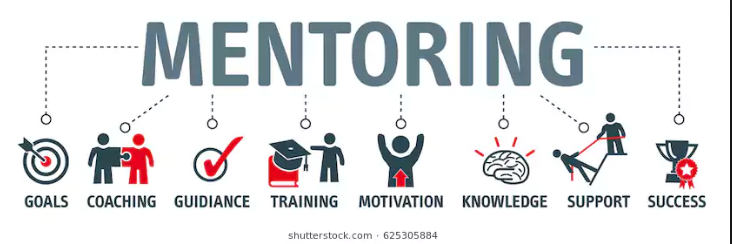People may learn from one another through mentoring, which creates a channel for the transmission of knowledge. For instance, in the workplace, a more seasoned employee might mentor a less seasoned employee by imparting information and ideas. A formal mentoring programme is a planned, frequently one-on-one interaction in a professional, organizational, or educational environment. Through mentoring, people may learn from one another and share their skills and expertise. Mentors and mentees who participate in effective mentoring programmes learn how to have fruitful talks and meetings, and they are given the skills and resources they need to advance their careers.
| Table of Contents
1. Who is a Mentor? 2. The significance of mentoring for mentors 3. The Value of Mentoring to Mentees 4. The Importance of Mentoring 5. Conclusion |
Who is a mentor?
A mentor is someone who guides their mentee—someone with less experience—as a mentor. The mentor encourages this person’s professional growth and development by regularly offering advice based on their more in-depth knowledge or experience. Through formal mentorship programmes, networking, and personal contacts, one can establish mentoring relationships.
The significance of mentoring for mentors
- Improve and develop skills: Mentors will gain the ability to plan ahead, communicate information properly, and assist others in developing both personally and professionally. Mentors assist mentees in developing their managerial and leadership skills.
- Give back: Being of assistance may be fulfilling and important. Being seen as someone’s source of wisdom is also a huge praise.
- See what comes after: In this partnership, there is mutual knowledge exchange. Mentors not only get insight into the issues and objectives of younger employees, but they may also receive a firsthand peek at cutting-edge tools or methods of operation.
The Value of Mentoring to Mentees
- Gain support and information: Effective mentoring equips mentees with new knowledge, skills, and institutional connections, as well as guidance, wisdom, and encouragement.
- Become more effective employees: Mentors’ advice and feedback can help workers perform better at work.
- Enhance their career and income: One study found that mentoring participants were more likely to receive raises in pay and promotions, while another found that they were more satisfied with their jobs.
The Importance of Mentoring
Because it gives workers the chance to advance in their careers, become more proficient in their jobs, and get ready for future possibilities for advancement, mentoring is crucial. When it comes to attracting, keeping, and engaging people, organisations must offer these chances.
- Career development: Companies that offer work environments that are professional supportive can anticipate attracting talent and experiencing higher retention rates with those they do. More effectively than job training, providing career mentors to less experienced employees fosters their skill development and social connections with the company.
- Improved talent recruitment and retention: By offering the opportunity to be mentored, a firm not only attracts emerging talent in the sector, but also increases the likelihood that those individuals will remain because doing so gives them more job satisfaction.
- Builds skills: Mentoring is important in developing critical knowledge and skills. Since workers are eager to advance their careers, businesses not only profit from having a better competent staff, but also from giving their employees what they want.
- Job integration: Organizations that want to attract talent should create teams and plan projects that foster the social connections that staff members desire. These employees will benefit from growth and professional development as well as a sense of belonging and responsibility for their roles if they are given access to professional mentors who facilitate coaching.
- Builds loyalty and corporate culture: Mentoring may help integrate individuals into company culture and make them feel that the firm cares about them.
- Diversity in leadership: Talent comes in all shapes and sizes, regardless of colour, religion, gender, or sexual orientation. By providing a mentorship programme, employers will provide their staff members the tools they need to develop as leaders within the organization.
- Mentoring relationships: Allow relationships between departments to grow organically, which frequently results in operational and organizational gains.
Conclusion
A structured mentorship programme enables mentors and mentees to create a connection that is fruitful and advantageous to everyone involved by establishing checkpoints and structure. Beyond the limitations of casual mentoring, the relationship is elevated by the structure and responsibility given by official programmes, such as set goals, mentor/mentee training, and a formalized communication channel. A structured programme can also foster more mentorship ties, especially with persons (workers and students) who are typically underserved by mentoring. In the hybrid workplace of today, mentoring is crucial. And while the structure or manner of the mentoring relationship between the mentor and the mentee may have changed, the core objectives and benefits have remained constant.

